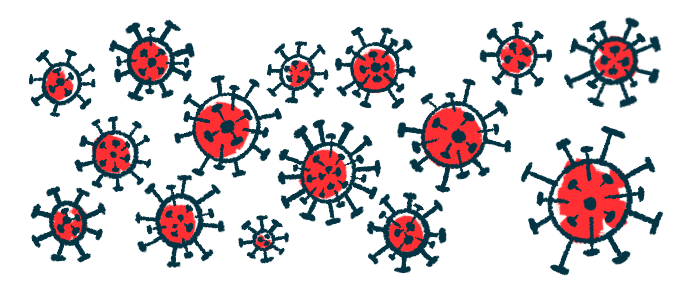No Extra Fabry-related Risks With COVID-19, Small Study Concludes
Severe COVID-19 risk seems driven by immune system function
Written by |

The risk of severe COVID-19 in people with Fabry disease appears to be driven by immune system function rather than by the genetic disorder itself — “similar to the general population” — a small study concluded.
“Immunosuppression therapy in kidney transplant recipients represented the highest risk in this [patient] population,” the researchers wrote.
Further studies on Fabry disease and COVID-19 may reveal potential protective responses in these patients that could be of interest for future treatments, the researchers noted.
The small study, “COVID-19 in Fabry disease: a reference center prospective study,” was published in the Orphanet Journal of Rare Diseases.
Fabry is a rare inherited disorder mainly affecting the heart, nervous system, and kidneys. There are two forms of Fabry: classic, which typically appears in childhood or adolescence, and late-onset, generally starting after age 30.
SARS-CoV-2, the virus that causes COVID-19, is primarily an infection of the lungs. But it also can affect various other organs, including the brain, heart, blood vessels, and kidneys. To reduce disease and mortality, vulnerable populations like Fabry patients must be identified and treated early.
However, whether SARS-CoV-2 infection bears a particular risk for Fabry patients is unknown.
Investigating COVID-19 risk factors in Fabry patients
During the pandemic, researchers at the University Hospital Zurich in Switzerland, followed 104 unvaccinated people with Fabry and reported symptoms and duration of COVID-19 as well as tests for anti-SARS-CoV-2 antibodies.
“To our knowledge, this is the first clinical study, which systematically evaluated SARS-CoV-2 infection in [Fabry disease] patients during [the] pandemic,” the team wrote.
The study included 24 men with classic Fabry and 12 with late-onset disease, plus 49 women with classic Fabry and 19 with the late-onset form.
Among the participants, 13 (12.5%) were diagnosed with SARS-CoV-2 infection. Specifically, four men and six women with classic Fabry were found to have COVID-19, as were three men with late-onset disease.
Of the infected patients, five had no existing damage to the heart, lungs, kidney, or nervous system, while six had advanced Fabry with heart, kidney, or nervous system involvement. Two of the participants were transplant recipients.
In all, two infected individuals developed severe COVID-19, which required hospitalization and oxygen supplements. Both of these patients were kidney transplant recipients, receiving immunosuppression therapy, who also had heart disease.
“Our finding, that kidney transplant recipients suffered most from severe COVID-19 is of particular importance regarding vaccination strategies,” the researchers wrote. “More specifically, it is known that the different immunosuppressive medications impair or suppress the response to vaccination via multiple mechanisms.”
The remaining eight infected individuals developed mild COVID-19 disease, while three showed no symptoms. Two patients experienced a Fabry pain crisis, and three developed long COVID-19-like signs, marked by ongoing symptoms that continued for four or more weeks.
None of the patients needed intubation, intensive care, or died from COVID-19. All nonhospitalized individuals received treatment for symptoms such as pain and fever, if any. No COVID-related therapies were given to hospitalized or nonhospitalized patients.
Blood samples were collected from 61 participants who were asymptomatic at that time. Five showed significant levels of anti-SARS-CoV-2 antibodies, but only two of these had COVID-19 symptoms with confirmed viral RNA in their medical records.
“In summary, the risk for severe COVID-19 in [Fabry] patients seems to be driven, like in general population, by the immune system rather than by [Fabry disease] itself,” the authors concluded. “The immunosuppression in kidney transplant recipients represented the highest risk in this population.”
“Further studies on the lysosomal dysfunction in [Fabry disease] and SARS-CoV-2 infection could reveal potential protective or modified responses in those patients and could be of interest for future treatments,” the authors added.






